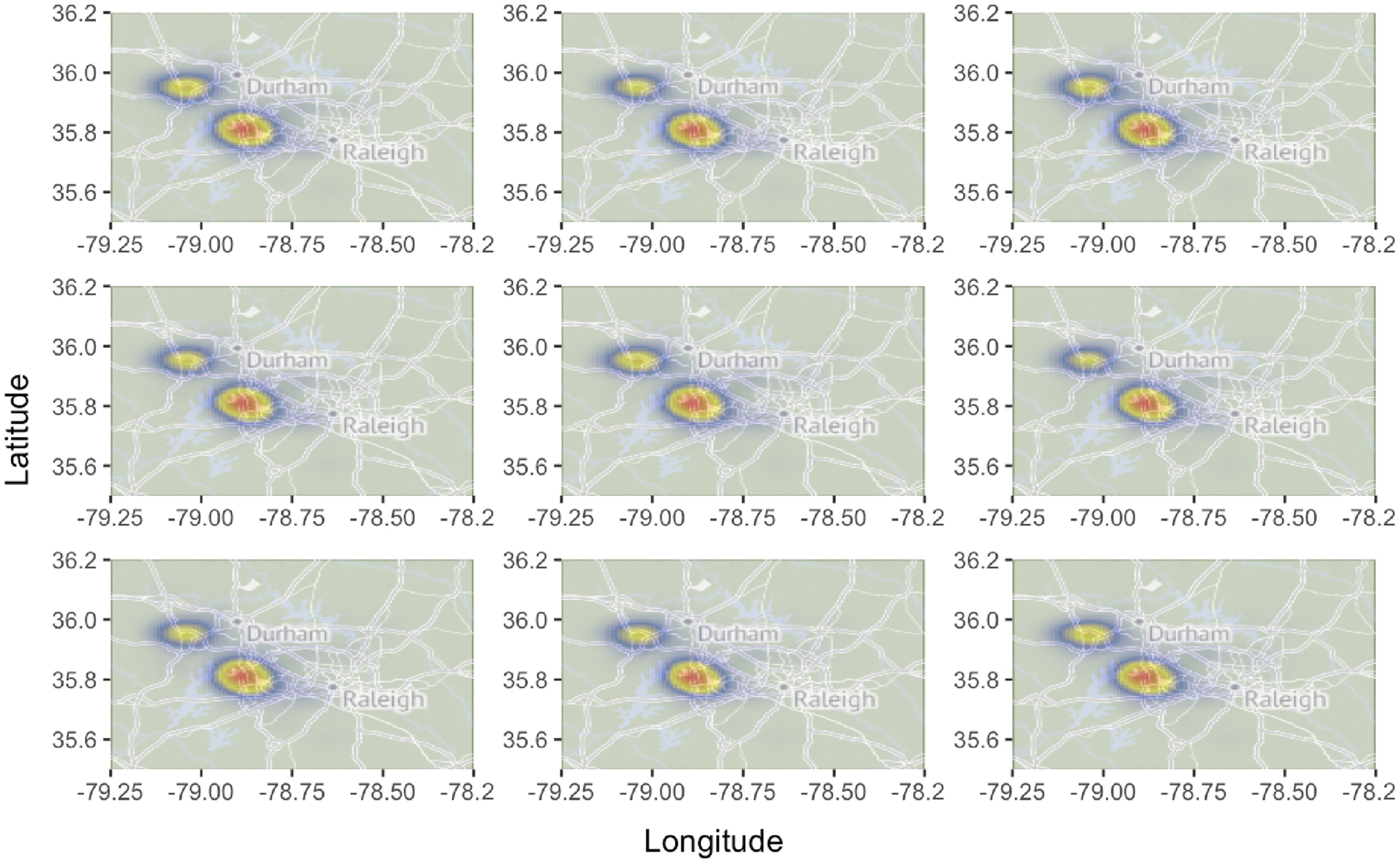A new paper published in the Journal of the Royal Statistical Society Series A: Statistics in Society uses probabilistic record linkage to study of the spatial distribution of immigrants using survey data without fine resolution geographic identifiers. This paper is a collaboration between statisticians (DUPRI scholar Jerome Reiter and graduate student Eric Bai) and demographers (DUPRI scholar Giovanna Merli and UNC Professor of Sociology & DUPRI affiliate Ted Mouw). This research was funded by pilot funds from NICHD grant 2P2CHD065563 to the Duke Population Research Center.
Many population surveys do not provide information on respondents’ residential addresses, instead offering coarse geographies like zip code or higher aggregations. However, fine resolution geography can be beneficial for characterizing neighbourhoods, especially for relatively rare populations such as immigrants. One way to obtain such information is to link survey records to records in auxiliary databases that include residential addresses by matching on variables common to both files. We present an approach based on probabilistic record linkage that enables matching survey participants in the Chinese Immigrants in Raleigh–Durham Study to records from InfoUSA, an information provider of residential records. The two files use different Chinese name romanization practices, which we address through a novel and generalizable strategy for constructing records’ pairwise comparison vectors for romanized names. Using a fully Bayesian record linkage model, we characterize the geospatial distribution of Chinese immigrants in the Raleigh–Durham area of North Carolina.
